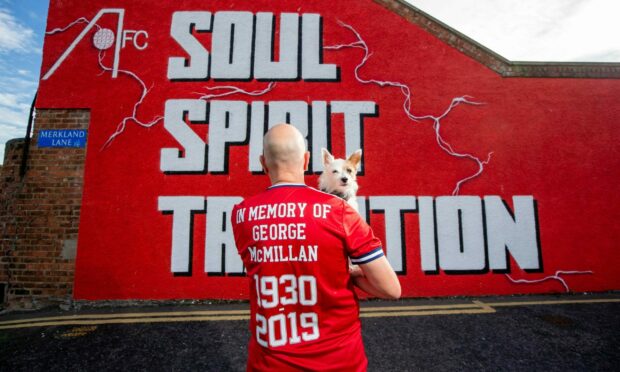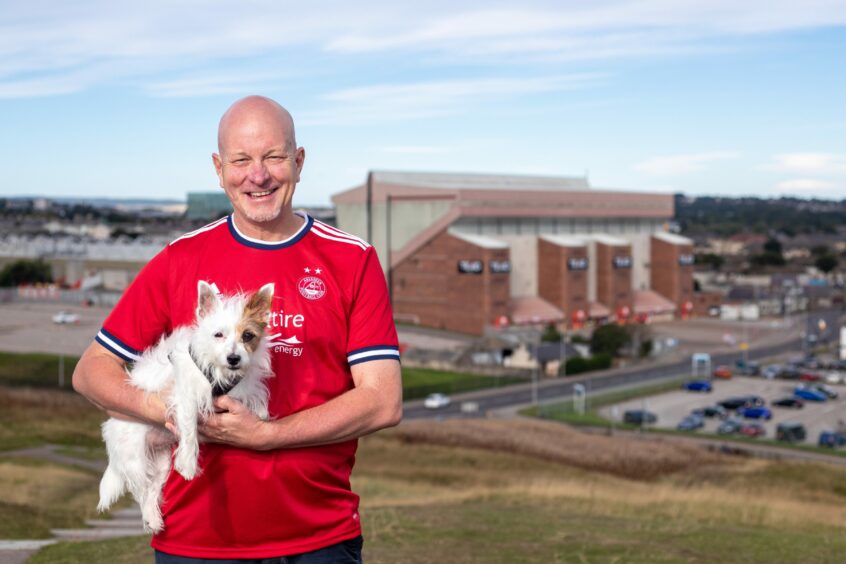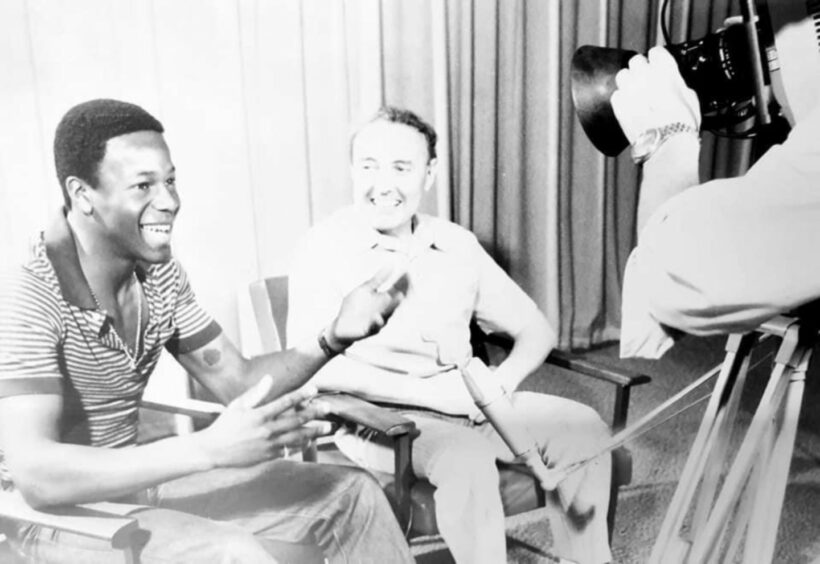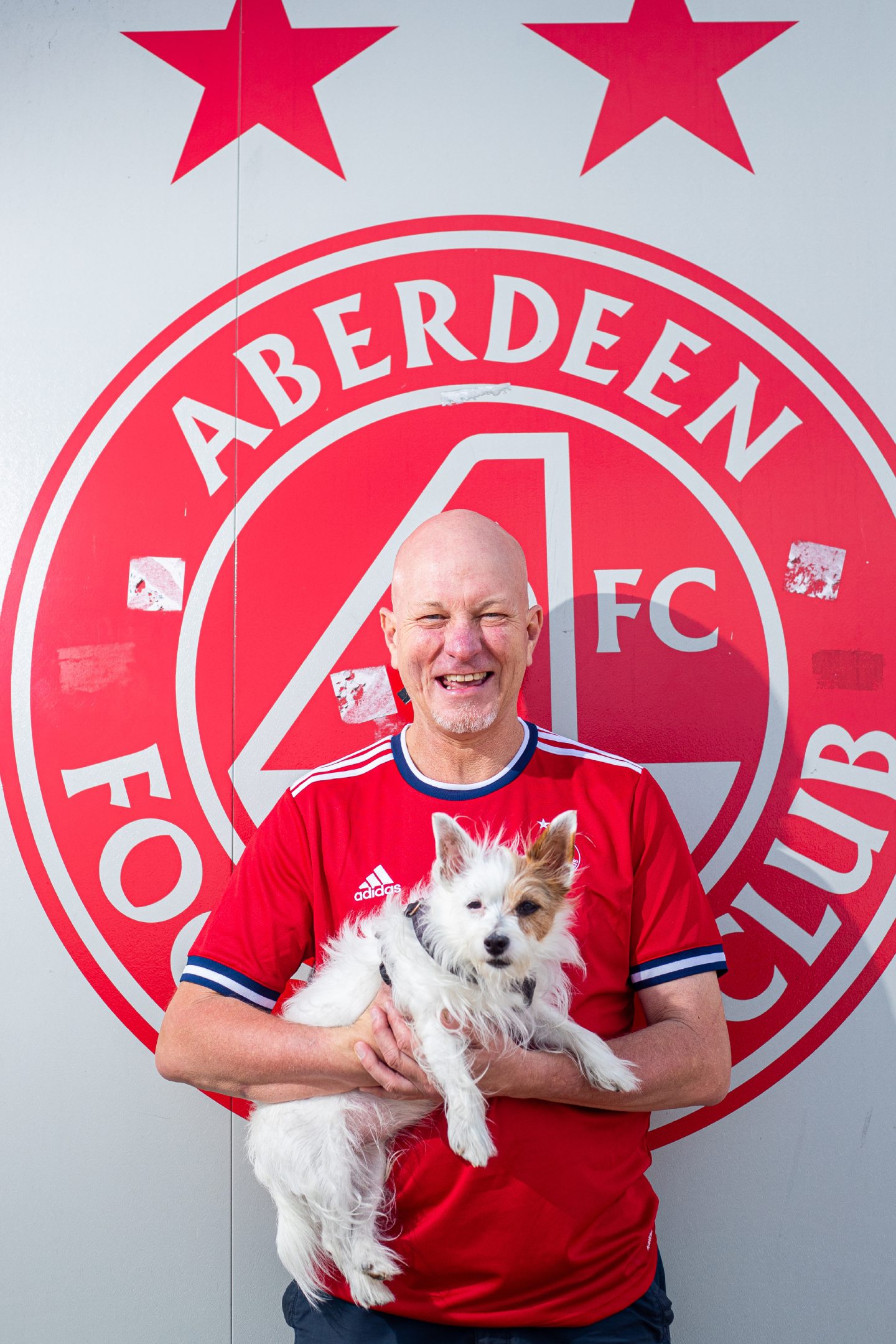It didn’t matter where George McMillan travelled during his peripatetic football career; there was only one place that truly captured his heart.
The Scot, who pledged his troth to Aberdeen FC after turning down Rangers and Manchester United in the early 1950s, eventually emigrated to Australia and became a successful coach with Juventus – no, not that one – and was a mentor to countless youngsters with a love for the sport, before launching his own radio show in Adelaide.
In 2000, however, he took aside his son, Graham, and delivered a message which the latter has never forgotten: “When I die, I’d like my ashes to be scattered at Pittodrie.”
It was nearly 20 years later – on Christmas Day in 2019 – when he eventually passed away, at the age of 89, but while Covid has presented a variety of problems, Graham was determined to fulfil his father’s wishes and has finally brought the plan to fruition.
And not only that, but he will further honour his memory by participating in next Sunday’s Loch Ness marathon – the first time he has attempted such a distance – and will aim to negotiate the course while wearing a Dons shirt with the words “In memory of George McMillan 1930-2019” on the back.
It’s a belated homecoming for a rugged individualist whose life and times demonstrate how family and football often go together like Aberdeen and the Northern Lights.
The astonishing thing is that it’s more than 70 years since the former winger made his debut for the Dons during his two-year stint at the club from 1950 to 1952 before turning out for Montrose, Fraserburgh, Brechin City, Newport County and Wrexham.
Yet though he was only in Aberdeen for a brief period, it was the place where he met his beloved wife, Mary, the city where he became a popular figure on and off the pitch, and the community that rallied round him after he broke his neck while working as an electrician.
And despite journeying to the other side of the world, it had cast its spell.
Graham recalled: “Dad loved everything to do with the club and he was in his element there. They looked after him really well and it stuck with him for the rest of his life.
“When we came back from Australia, it was to Peterborough, where I have been working as an ambulance care assistant, but I know that Dad always checked the Scottish football scores every Saturday night to see how Aberdeen had got on.
“It never left him and, even when we were over in Adelaide, he set up this Monday morning sports programme where he spun discs for people who wanted dedications and did interviews with a wide range of well-known football figures.
“Well, you can imagine how delighted he was when he got the chance to talk to Sir Alex Ferguson on one of those programmes.
“That was a really big thrill for him, as was becoming friends with Harry Redknapp and interviewing the likes of (Chelsea star) Pat Nevin and (the late Rangers icon) Davie Cooper.”
Becoming a coach and hitting the heights
It’s clear that George was a trailblazing figure who had a positive impact all the way from Aberdeen to Adelaide.
He achieved coaching success in both youth and men’s football and spearheaded Juventus to a brace of league titles, prior to taking charge of Campbelltown City and steering them to two more trophies as his reputation increased Down Under.
Overall, he spent 12 years as a mentor in the first and second divisions, while organising football clinics for six to 12-year-olds which led to him inspiring thousands of youngsters.
One of these was Graham, who subsequently played for Motherwell and Aberdeen reserves and was invited to join Rangers by manager Jock Wallace, which led to him and George watching the Dons tackle Rangers at Ibrox.
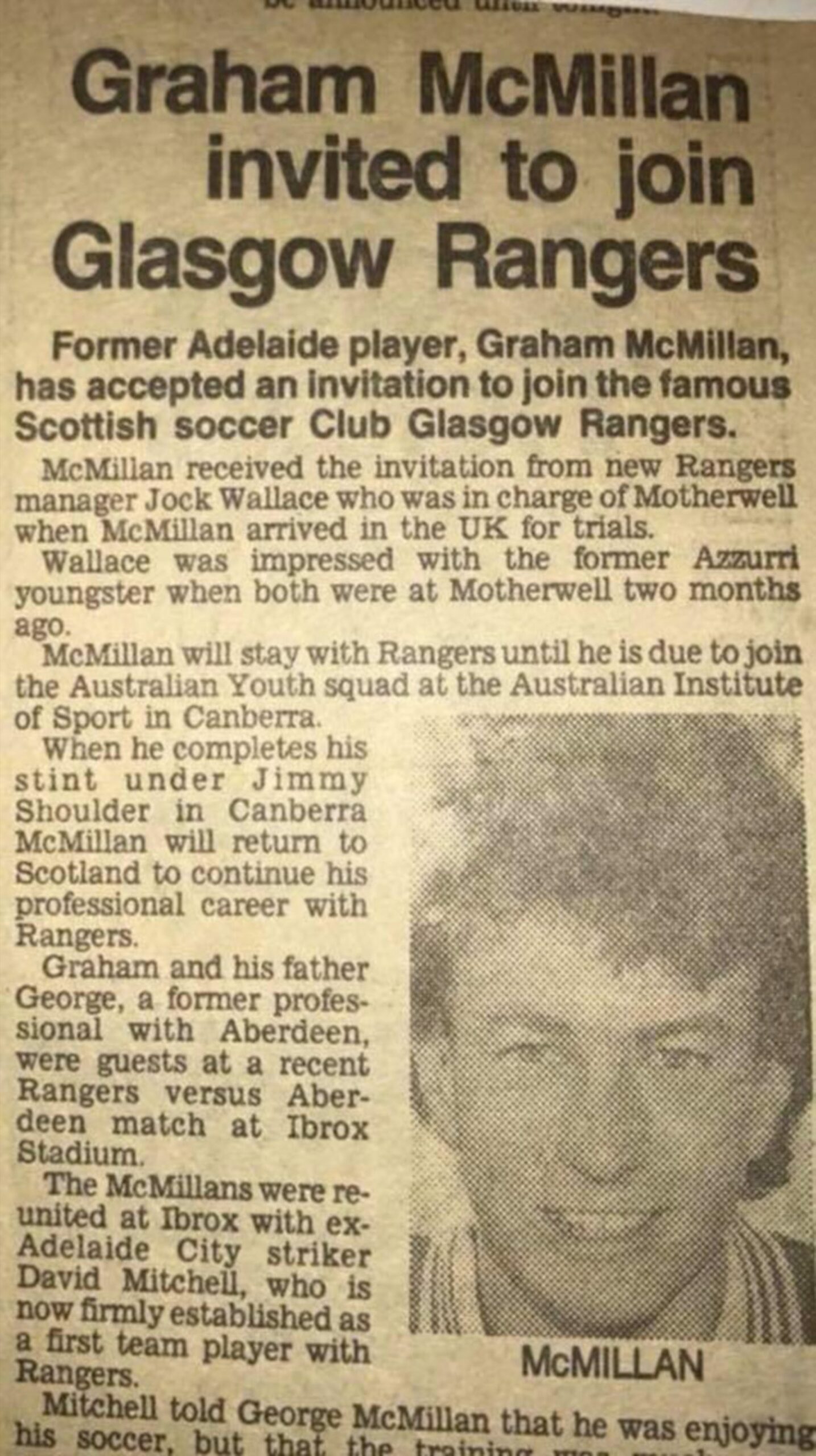
And he has nothing but admiration for the qualities instilled in him by his father.
He said: “Dad was a great coach and he was one of the first people to make sure that his sides were properly fit for competitive matches, which was a change because the normal Australian style was very laid-back.
“There were times when his sides were 2-0 down at the interval and then they would come out in the second half and completely dominate the rest of the game.
“The proudest moments of his life were definitely playing for Aberdeen and his coaching and working with so many children in Australia.”
The Anfield roar was another thrill
Graham still has an Australian twang, but spoke enthusiastically about the myriad happy memories he has enjoyed all over the globe. And not just in football.
He returned to Britain in 2004 to work in the sport of kings and served under David Elsworth, the trainer of the much-loved National Hunt horse Desert Orchid, before joining forces with Nick Gifford – whose dad Josh trained Aldaniti, which famously steered cancer survivor Bob Champion to victory in the 1981 Grand National.
No one has ever heard a bad word about George. He is in our football history.”
Raz DiCarlo
Then there was the cherished occasion when he and George visited Liverpool’s training ground and travelled to Anfield in the same luxury car as club manager Bob Paisley.
He recalled: “My dad knew one of Liverpool’s scouts from Aberdeen, Reuben Bennett, and he organised a trip for us to go to a training session.
“We went in Bob’s Rover, which was amazing for me as I was a huge Liverpool fan and he was an absolute hero of mine.
“We then went to a game at Anfield where they played Bolton Wanderers and Kenny Dalglish scored in front of the Kop, so it was a terrific weekend for us.”
Tributes poured in when George died
It was a measure of the respect in which George was held that effusive tributes were paid to him after the news emerged of his death.
Words such as “legend” and “hero” are often overused, especially in a sporting context, but there was a genuine warmth and affection about the valedictions.
Raz DiCarlo, South Australian Hall of Famer, summed up the mood as well as anybody when he wrote to tell Graham: “We spoke of your dad today with his peers and friends. Recounting memories and his achievements, he had a valuable life in our community.
“No one has ever heard a bad word about George. He is in our football history.”
It’s not a bad legacy for anybody, is it!
Graham’s getting ready for a monster run
Graham McMillan has not stopped working since the start of the pandemic and the trip to Scotland will be his first holiday in six years.
He also has two new knees that were replaced just before his dad died in December 2019, so he realises the Loch Ness marathon on October 3 will be a monster challenge.
Yet this redoubtable fellow has every incentive to complete the 26-mile-plus event and takes heart from knowing his father will be with him in spirit every step of the way.
He said: “I took up running a few years ago, and my wife Elaine (whom he met in Brighton in 2007) also runs, and I was hoping to be involved in the London Marathon, but we couldn’t get a place.
“Then I read about the Loch Ness race and thought to myself, it would be a good idea to return to the north of Scotland and take part with my Aberdeen shirt for company.
“I’ve also been helped by our wee Jack Russell/Yorky dog, Maisie, who always brought a smile to my dad’s face and loves joining me when we are out running.
“I have done a few 5ks and 10ks and I have completed a half marathon in the past but this will be something else. But I am doing it for dad and to help an Alzheimer charity and…that means a lot to me.”
He scattered some of his father’s ashes on the hill overlooking Pittodrie at the weekend in what was a simple, but moving ceremony.
Wherever the Dons go or don’t go in the future, it guarantees that George McMillan now has an indelible connection to Pittodrie.
